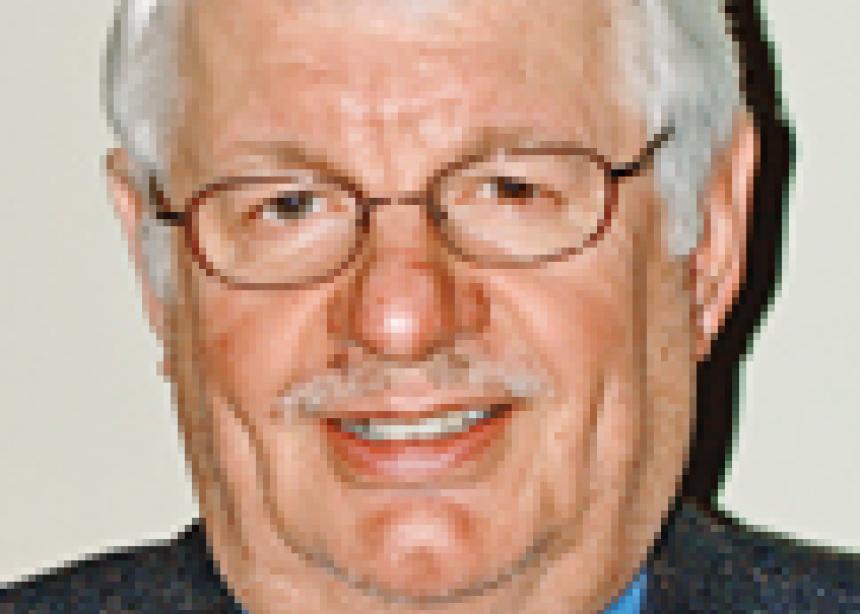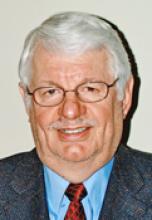"Give thanks in all circumstances, counsels the Apostle Paul to the new Christians at Thessalonica in ancient Greece, for this is God’s will for you in Christ Jesus.” (I Thessalonians 5:18).
Paul was addressing the anxieties of this new church, who, as part of their conversion and the excitement of a new spirituality guiding their lives, was expecting Jesus’ imminent return. The apostle had to lower their expectations and ask them, instead, to live in hope and to encourage and love each other meantime. In today’s vernacular it would be, simply: “Quit star-gazing and practice your faith here in the grim realities of life. Get a grip!”
Not everyone is nice, Paul would further elaborate, and the times can be depressing. So, what God, through Jesus, really wants you to do is to focus on loving rather than hating or criticising your sister or brother; live in the hope that despite the depravities of the world around you, know that God as the creator and sustainer of the cosmos, is working on a larger plan of redemption than is now apparent.
This is the kingdom now; it is not an escape to some place of golden streets and white-robed saints singing hallelujahs 24/7.
As I write this on Thanksgiving weekend, Paul’s admonition brings me up short. We are being called, not by the faith community, but by our country, to set aside a time to formally and systematically be thankful, to take a break from our normal work routines and gather family and friends around our tables for reflection and bonding. What an irony that many of us will turn that celebration into eating too much, then turning into inactive TV spectators or movie-goers!
Not exactly what our good ancient teacher and prophet had in mind.
Before we smile and smirk at the unenlightened Thessalonians of that ancient civilized world, let’s examine our own lives 2,000 years later to see if some apocalyptic yearnings aren’t bubbling next to the surface as we live in a world spiralling downward in violence and environmental degradation, working with co-workers or fellow “saints” in the congregation who sometimes betray and backbite, listening to and being victimized by government leaders who lie and mislead for their own partisan gains, suffering loss of health or losing close and dear friends through death.
Amid all this grief, who wouldn’t welcome the words of John the Revelator as he describes, in glorious details, the habitat of the New Jerusalem? Deliverance from this present evil mess would be true redemption indeed!
But wait, this is not what we are called to do. Rather, we are asked to help clean up the mess, roll up our sleeves and get to work at countering all this violence and degradation. Be alert, perceptive and vigilant to the evil around us. Work systematically and tirelessly at reversing the downward spiral by employing the forces of love and hope, says the apostle, in appealing to our better angels in this struggle.
In that regard, please join me in focusing, on this Thanksgiving Day, on the encouraging signs of life and hope around us. Rise above our disillusionments and cynicism about our world—a place where many valuable and important values and structures are in disarray—and concentrate (be thankful) for the forces for good (“salvation” in pietistic parlance) in a darkening world.
Things like our children, for instance. When I see up to 25 to 30 come up to hear the children’s story every Sabbath at our congregation, I am inspired and full of hope. These are beautiful little people with big imaginations whose parents, far more than in my days of parenting, are equipped and dedicated to develop those delightful unfinished human products into creative and contributing adults.
Moving it up a notch, I am also inspired when I see what the writers in our new Young Voices section are sinking their teeth into—addressing issues with insight and courage and calling, in some cases, their elders to account.
When I see what our teachers, biblical scholars and denominational leaders are providing the congregations for spiritual formation and development, I am encouraged. Never mind some of the diminishing numbers; I rather see an emerging spirituality that is both contemplative and muscular. That, in its own quiet way, will counter some of the entrenched forces of tradition that have inhibited our spiritual imaginations.



Add new comment
Canadian Mennonite invites comments and encourages constructive discussion about our content. Actual full names (first and last) are required. Comments are moderated and may be edited. They will not appear online until approved and will be posted during business hours. Some comments may be reproduced in print.